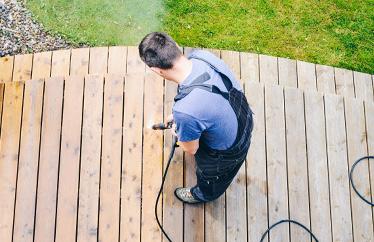Recovering from a house fire is easier to do with plan of action.
Imagine coming home to find that everything you own has been destroyed. The roof has been reduced to a giant skylight. All of your belongings have turned into a pile of ash and the only walls that remain standing are a somber shade of black. That’s what happened to Ariel Henley — twice.
After a house fire, victims often feel frightened and upset. Some may feel confused or emotionally distressed. Coming to terms with what happened and deciding what to do next can be challenging. But take a deep breath. Contact your loved ones and let them know you’re safe. Then, follow the steps below and get your life back on track.
Contact your insurance company
If you lose your home to a fire, the standard homeowners insurance policy will cover the cost of damages. Just make sure you report the loss as soon as possible.CLICK TO TWEET
If you lose your home to a fire, the standard homeowners insurance policy will cover the cost of damages. Just make sure you report the loss as soon as possible. You’ll want to get in touch with your agent or broker and file a claim right away. Report how, when and where the damage occurred. And if possible, include photos and video footage. An adjuster will likely come to your property to survey the damage. Cooperate fully with their investigation in order to settle your claim in a timely and efficient manner.
At Hippo we developed a 24/7 claims concierge team to support our clients, and offer an empathetic ear and the on-the-ground support needed to get customers back on their feet (from hotel bookings to cleaning service coordination).
Get a copy of your fire report
A fire report will show the condition that the house was in when first responders arrived at the scene. It will also list important information, like the time and date of the incident and the incident number, which your insurance company may eventually need. In most places, a fire report is a public document. Call your local fire department, fire prevention bureau or fire marshall to get a copy of your report. If you can’t track it down, consider reaching out to the fire department’s billing agency. In certain areas, the fire incident report may need to be attached to the fire department’s bill.
Get your finances in order
You’ll also have to contact your landlord or mortgage lender after a fire. Continue to make monthly payments even if your home was completely destroyed (and car payments if your vehicle was damaged by the fire).CLICK TO TWEET
You’ll also have to contact your landlord or mortgage lender after a fire. Continue to make monthly payments even if your home was completely destroyed (and car payments if your vehicle was damaged by the fire). You should also reach out to your credit card companies and request replacements for any cards that you’ve lost. Retain all receipts and keep a detailed record of all purchases you made while you were displaced.
Since there’s no way to predict when a house will catch fire, there’s no such thing as being over prepared for the worst case scenario. There are several steps you should take now so that you’re not completely caught off guard if smoke and flames suddenly fill your home.
First, if you have insurance, make sure you have adequate coverage. Spend some time considering the true value of your possessions and how much it would cost to replace them. Consider shooting a video and creating an inventory of all of the items in your home. Keep it in a safe place, like a safety deposit box, and back it up digitally in the cloud, DropBox or Google Drive.
If you haven’t already done it, you should start building an emergency fund. Experts suggest setting aside enough money to cover living expenses for at least three to six months. You may have to dip into your emergency fund after a house fire, but hopefully you’ll eventually be able to replenish it.
Investing in fire extinguishers and fire escape ladders for every window on the second floor of your home is also a good idea. Install smoke detectors (or better yet, smart smoke detectors) in every room so that everyone has the chance to get out safely if there’s a fire. And take time to meet with your family members and create a plan with escape routes. As often as you can, schedule fire drills so that everyone knows where to meet if someone smells smoke or sees any evidence of a fire.
Finally, make sure you familiarize yourself with your insurance policy. Know what it covers so that you understand what will be taken care of and what you’ll have to pay for in the event of a fire.




